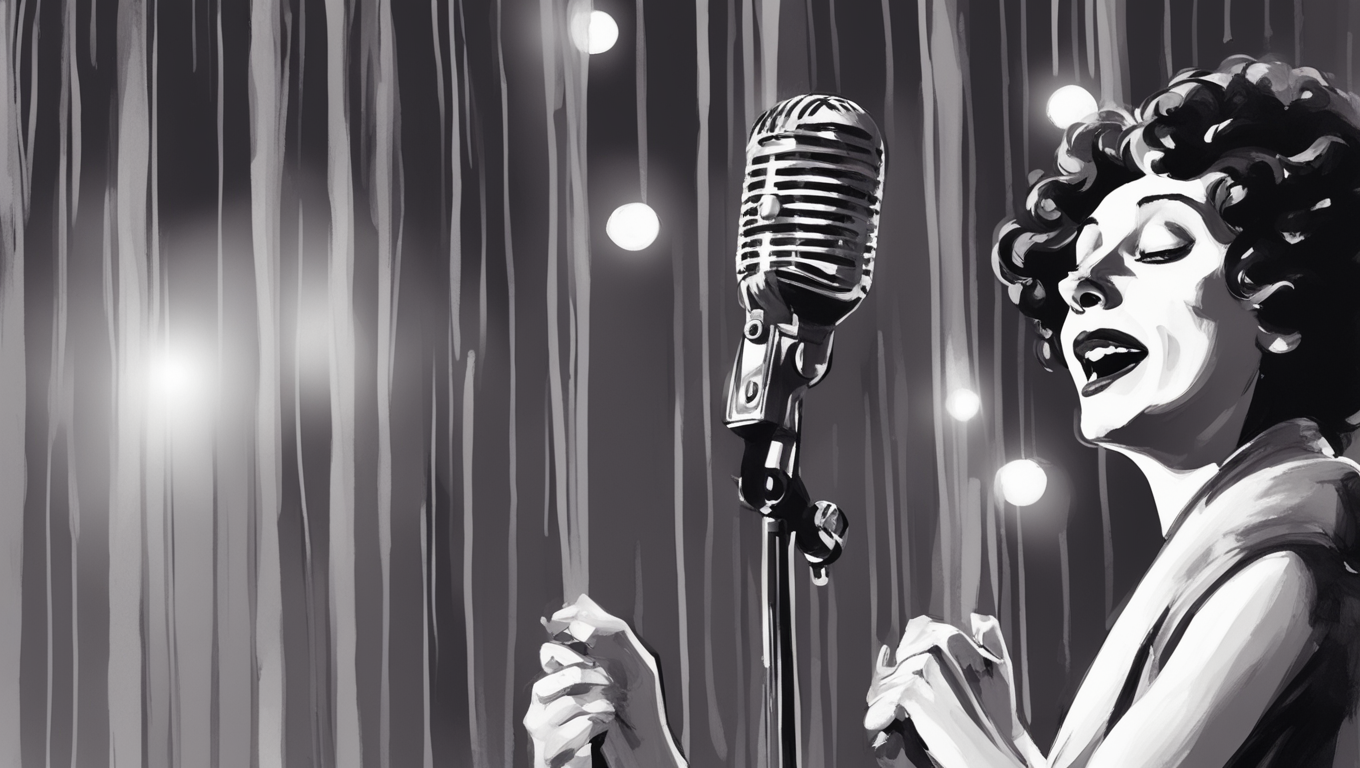Sixty years after her death, the legendary French singer Édith Piaf will have her voice resurrected using artificial intelligence (AI) to narrate her own biopic. Warner Music Group (WMG) has partnered with the Piaf estate to produce the feature-length film Edith, employing AI technology to replicate Piaf’s voice. By feeding the AI system hundreds of voice clips, WMG aims to create a re-creation that will “further enhance the authenticity and emotional impact of her story.” In addition to the AI-generated narration, the film will use animation to give a modern perspective on Piaf’s life, while also incorporating archival footage and personal interviews to provide audiences with an authentic portrayal of her life.
This ambitious project is still in the proof-of-concept stage, with WMG teaming up with production company Seriously Happy to further develop the film. The director of French documentaries on renowned artists such as Diana Ross, Sting, and Stevie Wonder, Julie Veille, conceived the idea behind Edith. Reflecting on the film’s goals, Veille stated, “When creating the film, we kept asking ourselves, ‘If Édith were still with us, what messages would she want to convey to the younger generations?’ Her story is one of incredible resilience, of overcoming struggles and defying social norms to achieve greatness - and is as relevant now as it was then. Our goal is to utilize the latest advancements in animation and technology to bring the timeless story to audiences of all ages.”
The executors of Piaf’s estate expressed their emotional connection to the project, stating, “It’s been a special and touching experience to be able to hear Édith’s voice once again - the technology has made it feel like we were back in the room with her. The animation is beautiful, and through this film, we’ll be able to show the real side of Édith - her joyful personality, her humor, and her unwavering spirit.”
This endeavor is not the first instance where AI has been employed to recreate the voices of deceased artists. In 2022, Andy Warhol’s voice was brought back to life using AI for the Netflix documentary The Andy Warhol Diaries. Similarly, AI technology has been used to recreate the voices of actor Edward Herrmann, allowing him to continue narrating audiobooks even after his death. While these advancements in AI have faced some controversy, they also provide an avenue for preserving the legacies of beloved figures.
In the music world, AI software has even been used to isolate John Lennon’s vocals to help the surviving members of The Beatles record their final song together. However, it’s worth noting that AI-generated performances have sparked debates when used to create entirely new music or imitate living artists. For example, rapper Drake expressed his dissatisfaction when an AI version of him was used in a fake performance of music by fellow rapper Ice Spice. Universal Music Group has also raised concerns about infringing content created with generative AI, leading to the removal of a song featuring convincing AI-created versions of Drake and the Weeknd from streaming services.
The use of AI to resurrect the voices of deceased artists raises intriguing questions about the boundaries of technology and artistic expression. It provides an opportunity for fans to connect with their favorite artists in new ways and for artists themselves to continue their creative legacies beyond their lifetimes. However, it also opens up discussions about consent, authenticity, and the ethical implications of using technology to replicate human voices. As AI continues to advance, we can expect these conversations to become increasingly relevant.





Use the share button below if you liked it.